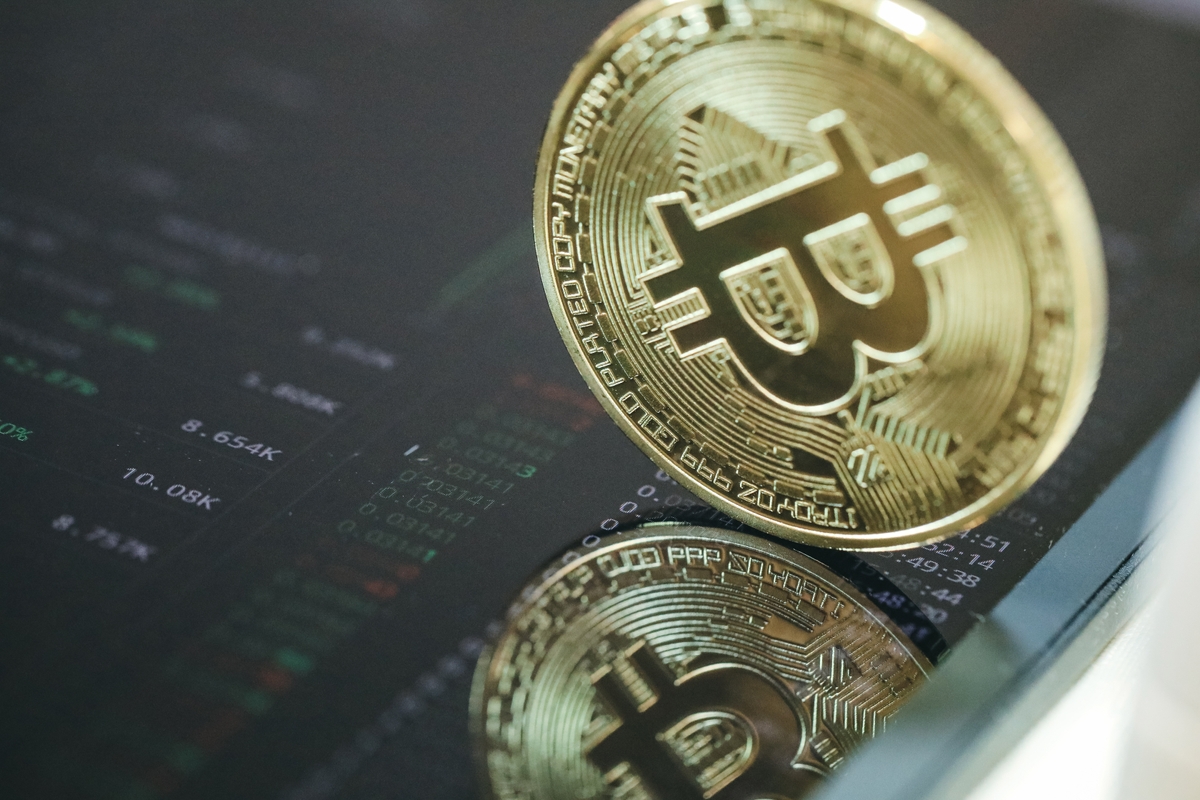A Vital Support: Bitcoin’s Impact on Remote Learning
- 1 Bitcoin as a Financial Inclusion Tool
- 1.1 The Digital Divide in Remote Learning
- 1.2 How Bitcoin Can Provide Financial Inclusion
- 1.3 Case Studies of Bitcoin-Powered Initiatives in Remote Education
- 2 Secure and Borderless Transactions
- 2.1 Traditional Payment Challenges in Remote Education
- 2.2 Advantages of Using Bitcoin for International Transactions
- 2.3 Real-World Examples of Bitcoin’s Role in Facilitating Cross-Border Education
- 3 Reducing Transaction Costs
- 3.1 High Fees Associated with Traditional Payment Methods
- 3.2 How Bitcoin Can Reduce Transaction Costs in Remote Education
- 3.3 Case Studies Demonstrating Cost Savings in Remote Learning with Bitcoin
- 4 Enhancing Privacy and Security
- 4.1 Data Privacy Concerns in Remote Education
- 4.2 The Role of Bitcoin in Enhancing Privacy and Security
- 4.3 Exploring Cryptographic Features that Benefit Remote Learners
- 5 Empowering Educators and Students
- 5.1 How Bitcoin Can Support Teachers and Learners Directly
- 5.2 Microtransactions and Their Impact on Content Creation and Access
- 5.3 Personalized Learning Through Bitcoin-Powered Platforms
- 6 Challenges and Future Prospects
- 6.1 Regulatory Concerns and Legal Implications
- 6.2 The Need for Education on Bitcoin and Its Adoption
- 6.3 Future Possibilities and Innovations in the Intersection of Bitcoin and Remote Learning
- 7 Conclusion
In recent years, the landscape of education has undergone a profound transformation with the rise of remote learning, driven by digital technology and global events like the COVID-19 pandemic. This shift has brought to light the importance of reliable resources for those seeking to understand the financial aspects of digital technology, such as Bitcoin. In this context, https://www.ai-pro-2024.com/, an investment education firm, emerges as a valuable resource for gaining deeper insights and understanding. This article explores the intriguing role of Bitcoin as a crucial support system for remote education, offering solutions to financial barriers, transaction challenges, privacy concerns, and more. By delving into real-world examples and innovative possibilities, we aim to show how Bitcoin can revolutionize remote learning, ensuring that quality education is accessible to learners worldwide.
Bitcoin as a Financial Inclusion Tool
The Digital Divide in Remote Learning
One of the most significant issues in remote learning is the digital divide. Many students lack access to the necessary technology and financial resources to participate effectively in online education. Bitcoin has the potential to bridge this gap by enabling direct peer-to-peer transactions without the need for traditional banking infrastructure.
How Bitcoin Can Provide Financial Inclusion
Bitcoin’s decentralized nature and accessibility to anyone with an internet connection make it an ideal tool for financial inclusion. Students from underserved regions can receive payments, access educational resources, and pay for their education without intermediaries or excessive fees.
Case Studies of Bitcoin-Powered Initiatives in Remote Education
Numerous initiatives and organizations have recognized Bitcoin’s potential in remote education. For example, scholarships and donations in Bitcoin have enabled financially disadvantaged students to access quality education. These case studies demonstrate the real-world impact of Bitcoin on enhancing financial inclusivity in remote learning.
Secure and Borderless Transactions
Traditional Payment Challenges in Remote Education
Conventional payment methods often pose challenges in remote education. Cross-border transactions can be expensive, slow, and subject to currency fluctuations, leading to financial uncertainty for students and institutions.
Advantages of Using Bitcoin for International Transactions
Bitcoin offers a borderless and secure way to make international transactions. Its blockchain technology ensures transparency and eliminates intermediaries, reducing the risk of fraud and enhancing security. This makes it an attractive option for students studying abroad and institutions with international students.
Real-World Examples of Bitcoin’s Role in Facilitating Cross-Border Education
Several universities and educational platforms now accept Bitcoin as a payment method for tuition and fees. These examples highlight the practicality and convenience of using Bitcoin for international education payments, fostering a globalized learning environment.
Reducing Transaction Costs
High Fees Associated with Traditional Payment Methods
Traditional banking systems and payment gateways often impose high transaction fees, affecting students and educational institutions. These fees can lead to significant financial burdens and discourage participation in remote learning.
How Bitcoin Can Reduce Transaction Costs in Remote Education
Bitcoin’s decentralized nature and lower transaction fees can significantly reduce the overall cost of processing payments in remote education. By bypassing banks and intermediaries, students and educational institutions can save money and allocate resources more efficiently.
Case Studies Demonstrating Cost Savings in Remote Learning with Bitcoin
Various institutions and e-learning platforms have reported cost savings by incorporating Bitcoin into their payment systems. These case studies illustrate how Bitcoin can streamline financial processes in remote education, ultimately benefiting all stakeholders.
Enhancing Privacy and Security
Data Privacy Concerns in Remote Education
The collection and storage of sensitive student data have raised concerns about privacy in remote education. Protecting personal information is essential to maintain trust between students and institutions.
The Role of Bitcoin in Enhancing Privacy and Security
Bitcoin’s use of cryptographic technology ensures the privacy and security of transactions. It allows students to make payments and access educational resources while maintaining their data privacy, reducing the risk of data breaches.
Exploring Cryptographic Features that Benefit Remote Learners
In addition to transaction security, Bitcoin’s blockchain technology can be leveraged for secure document verification, academic credential verification, and plagiarism prevention. These features contribute to a safer and more transparent remote learning environment.
Empowering Educators and Students
How Bitcoin Can Support Teachers and Learners Directly
Bitcoin enables direct peer-to-peer interactions, allowing teachers to receive payments for their services without intermediaries. This direct connection between educators and students can foster a more personalized and accessible learning experience.
Microtransactions and Their Impact on Content Creation and Access
Microtransactions, made possible by Bitcoin, allow students to pay for educational content peruse. This pay-as-you-go model encourages content creators to produce high-quality resources, enhancing the remote learning experience.
Personalized Learning Through Bitcoin-Powered Platforms
Bitcoin-powered platforms can offer personalized learning experiences based on individual preferences and progress. These platforms can adapt content, assessments, and resources to cater to each student’s unique needs, maximizing learning outcomes.
Challenges and Future Prospects
Regulatory Concerns and Legal Implications
The use of Bitcoin in education is not without its challenges. Regulatory uncertainties and potential legal issues may arise as the adoption of cryptocurrencies in schooling grows. Institutions and policymakers need to address these concerns to ensure a smooth transition.
The Need for Education on Bitcoin and Its Adoption
Education and awareness campaigns are essential to harness Bitcoin’s full potential in remote learning. Students, educators, and institutions should know Bitcoin’s benefits, risks, and best practices.
Future Possibilities and Innovations in the Intersection of Bitcoin and Remote Learning
As technology evolves, so will the ways Bitcoin can support remote education. Innovations such as blockchain-based diplomas, decentralized learning platforms, and more efficient financial systems hold promise for the future of distance learning.
Conclusion
In conclusion, Bitcoin’s potential impact on remote learning is substantial, addressing financial inclusivity, reducing transaction costs, enhancing privacy and security, and empowering educators and students. Real-world examples illustrate its tangible benefits, while ongoing innovation in the intersection of Bitcoin and education promises a brighter future for remote learning. With proper regulation, increased education, and continued development, Bitcoin is poised to become a vital support system, fostering global equitable access to high-quality education.


















